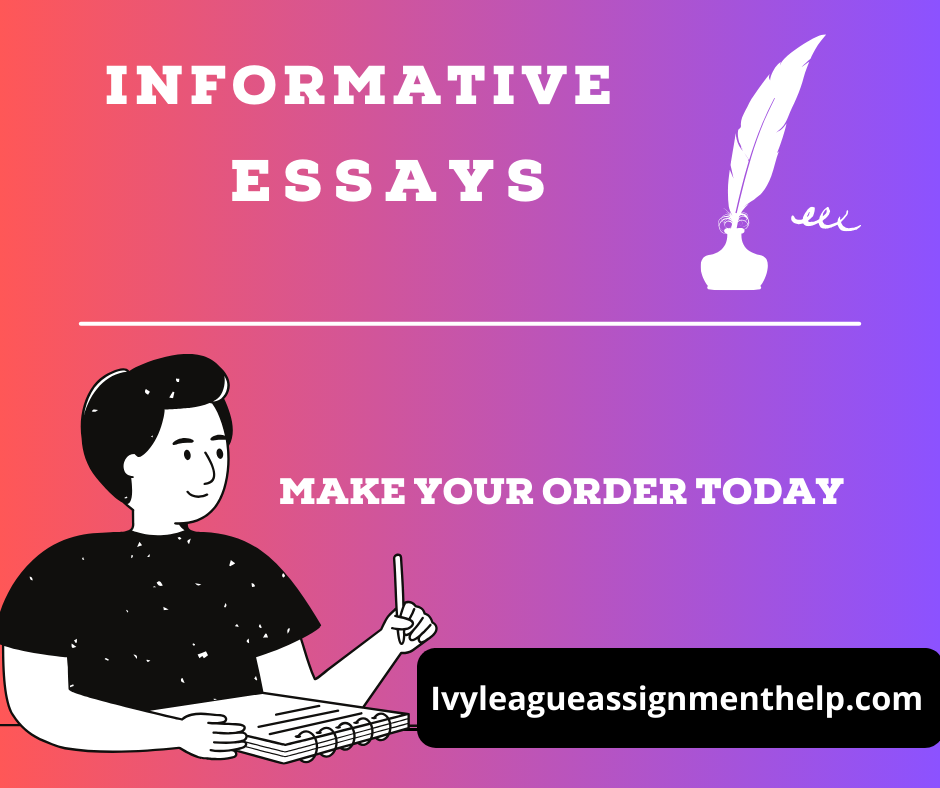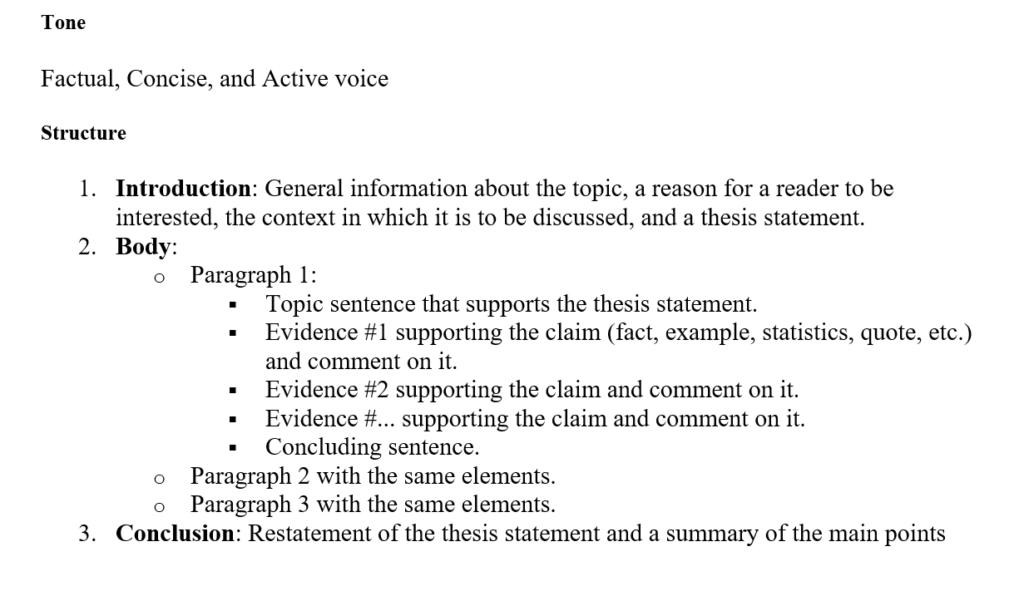Mastering the Art of Informative Essays: A Comprehensive Guide
Informative/expository essays are fundamental tools for clear communication in academic and professional settings. An informative essay is a piece of writing that requires a writer to choose a specific aspect of an idea/problem, find relevant information, and present it. INFORM the audience by providing definition(s), comparing and contrasting, describing the process, and analyzing causes and effects. This guide will help you understand their key elements and types and how to craft them effectively.

Key Takeaways:
- Informative/expository essays aim to inform and explain
- Clear structure and objectivity are crucial
- Various types serve different purposes
- Thorough research and organization are essential
- Effective writing techniques enhance clarity and engagement
What is an Informative/Expository Essay?
An informative/expository essay is a type of academic writing that aims to inform, explain, or describe a specific topic to the reader. Unlike persuasive or argumentative essays, the primary goal is to provide clear, factual information without attempting to sway the reader’s opinion.
Why are Informative/Expository Essays Important?
These essays play a crucial role in both academic and professional environments:
- In academia, they demonstrate a student’s understanding of a subject and ability to communicate complex ideas.
- In professional settings, they’re used to explain processes, present findings, or provide detailed information on various topics.
Key Elements of an Informative/Expository Essay
To create an effective informative/expository essay, consider these essential components:
- Clear thesis statement: A concise, focused statement that outlines the main idea of your essay.
- Organized structure: A logical flow of information, typically following the introduction-body-conclusion format.
- Factual information: Well-researched, accurate data from credible sources.
- Objective tone: Presentation of information without personal bias or opinion.

How does an informative essay differ from other types of essays?
An informative essay focuses on providing facts and explanations, while other essay types may have different goals:
| Essay Type | Primary Goal |
|---|---|
| Informative | To inform or explain |
| Persuasive | To convince the reader of a particular viewpoint |
| Narrative | To tell a story or recount an experience |
| Descriptive | To vividly describe a person, place, or thing |
Types of Informative/Expository Essays
Understanding the various types of informative/expository essays can help you choose the most appropriate format for your topic:
1. Definition Essays
- Purpose: Explain the meaning of a term, concept, or idea
- Example topic: “The Concept of Emotional Intelligence in the Workplace”
2. Process Essays
- Purpose: Describe how something is done or how something works
- Example topic: “The Step-by-Step Process of 3D Printing”
3. Compare and Contrast Essays
- Purpose: Examine similarities and differences between two or more subjects
- Example topic: “Renewable vs. Non-renewable Energy Sources: A Comparison”
4. Cause and Effect Essays
- Purpose: Explore the reasons for something happening and its consequences
- Example topic: “The Impact of Social Media on Mental Health”
5. Problem-Solution Essays
- Purpose: Identify a problem and propose potential solutions
- Example topic: “Addressing Food Waste in Urban Areas: Challenges and Solutions”
Steps to Write an Informative/Expository Essay
Follow these steps to create a well-structured and informative essay:
- Choose a topic: Select a subject that interests you and is appropriate for your audience.
- Research thoroughly: Gather information from credible sources, including academic journals, books, and reputable websites.
- Create an outline: Organize your ideas and information in a logical structure.
- Write a strong introduction: Begin with an attention-grabbing hook and clearly state your thesis.
- Develop body paragraphs: Present your information in a logical order, using topic sentences and supporting details.
- Craft a conclusion: Summarize your main points and reinforce the significance of your topic.
Related Question: How long should an informative essay be?
The length of an informative essay can vary depending on the assignment requirements and complexity of the topic. Here’s a general guideline:
| Academic Level | Typical Length |
|---|---|
| High School | 500-800 words |
| Undergraduate | 1000-1500 words |
| Graduate | 2000-2500 words |
Remember that quality is more important than quantity. Focus on providing clear, concise, and relevant information rather than meeting a specific word count.
Tips for Effective Informative/Expository Writing
To enhance the quality of your informative/expository essays, consider these tips:
- Use credible sources: Rely on peer-reviewed journals, academic publications, and expert opinions.
- Incorporate relevant examples: Illustrate your points with real-world examples or case studies.
- Maintain objectivity: Present information without personal bias or opinions.
- Employ transitional phrases: Use words and phrases that connect ideas and improve the flow between paragraphs.
By following these guidelines and practicing regularly, you can master the art of informative/expository essay writing, enhancing your academic and professional communication skills.
Common Challenges and How to Overcome Them
When writing informative/expository essays, students and professionals often encounter several challenges. Here are some common issues and strategies to address them:
1. Avoiding Bias
Challenge: Maintaining objectivity, especially when writing about controversial topics.
Solution:
- Focus on presenting facts from multiple perspectives
- Use neutral language and avoid emotional rhetoric
- Cite credible sources with diverse viewpoints
2. Organizing Complex Information
Challenge: Structuring large amounts of information in a coherent manner.
Solution:
- Create a detailed outline before writing
- Use hierarchical headings (H2, H3, etc.) to organize content
- Employ visual aids like tables or charts to summarize complex data
3. Engaging the Reader
Challenge: Keeping the audience interested in potentially dry or technical subjects.
Solution:
- Start with an intriguing hook or relevant anecdote
- Use varied sentence structures and engaging transitions
- Incorporate relevant examples and case studies
Examples of Successful Informative/Expository Essays
Analyzing well-written essays can provide valuable insights into effective expository writing techniques. Here are two examples:
1. “The Immortal Life of Henrietta Lacks” by Rebecca Skloot
Key Takeaways:
- Skillfully blends scientific information with human interest
- Uses narrative techniques to engage readers while providing factual content
- Balances technical details with accessible explanations
2. “Consider the Lobster” by David Foster Wallace
Key Takeaways:
- Presents complex ethical and biological information in an engaging manner
- Uses footnotes to provide additional context without disrupting the main text
- Combines personal observations with well-researched facts
Enhancing Your Informative/Expository Writing Skills
To further improve your writing, consider these advanced techniques:
- Incorporate analogies: Use familiar concepts to explain complex ideas
- Employ rhetorical questions: Engage readers by prompting them to think critically
- Utilize data visualization: Present statistics or trends using graphs or infographics
- Practice active voice: Make your writing more direct and engaging
Related Question: How can I make my informative essay more interesting?
Here are some strategies to enhance the appeal of your informative essays:
| Technique | Example |
|---|---|
| Use anecdotes | Begin with a relevant story that illustrates your main point |
| Incorporate surprising facts | Include little-known information to capture reader interest |
| Employ vivid descriptions | Use sensory details to make abstract concepts more concrete |
| Ask thought-provoking questions | Encourage readers to reflect on the topic’s implications |
The Role of Research in Informative/Expository Writing
Thorough research is the foundation of a strong informative essay. Here’s how to approach it effectively:
- Diversify your sources: Use a mix of academic journals, books, reputable websites, and expert interviews
- Evaluate source credibility: Check author credentials, publication date, and peer review status
- Take organized notes: Use a system like the Cornell method to structure your research findings
- Synthesize information: Look for patterns and connections across different sources
Frequently Asked Questions
What’s the difference between an informative essay and a research paper?
While both involve research, an informative essay focuses on explaining a topic to the reader, while a research paper typically argues a specific point or analyzes a particular aspect of a subject in greater depth.
Can I use a first-person perspective in an informative essay?
Generally, it’s best to avoid first-person pronouns in informative essays to maintain objectivity. However, some disciplines or specific assignments may allow for limited use of the first-person perspective.
How many sources should I use for an informative essay?
The number of sources depends on the essay’s length and complexity. As a general rule, aim for at least 2-3 credible sources per page of your essay.
Is it necessary to include counterarguments in an informative essay?
While not always required, including counterarguments or alternative viewpoints can enhance the comprehensiveness and credibility of your essay, especially when dealing with complex or controversial topics.
How can I ensure my informative essay doesn’t become too technical or difficult to understand?
Balance technical information with clear explanations, use analogies to explain complex concepts, define specialized terms, and consider your audience’s background knowledge when determining the level of detail to include.
